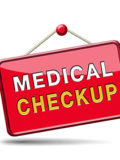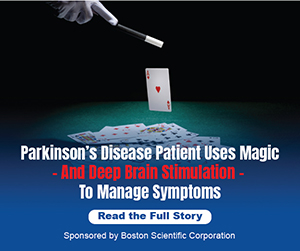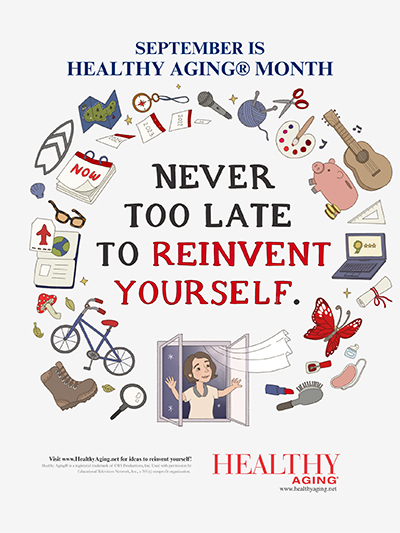High blood pressure (hypertension) can quietly damage your body for years before symptoms develop. Left uncontrolled, you may wind up with a disability, a poor quality of life or even a fatal heart attack. Roughly half the people with untreated hypertension die of heart disease related to poor blood flow (ischemic heart disease) and another third die of stroke.
Treatment and lifestyle changes can help control your high blood pressure to reduce your risk of life-threatening complications.
Here’s a look at the complications high blood pressure can cause when it’s not effectively controlled.
Damage to Your Arteries
Healthy arteries are flexible, strong and elastic. Their inner lining is smooth so that blood flows freely, supplying vital organs and tissues with nutrients and oxygen.
Hypertension gradually increases the pressure of blood flowing through your arteries. As a result, you might experience:
Damaged and narrowed arteries
High blood pressure can damage the cells of your arteries’ inner lining. When fats from your diet enter your bloodstream, they can collect in the damaged arteries. Eventually, your artery walls become less elastic, limiting blood flow throughout your body.
Aneurysm
Over time, the constant pressure of blood moving through a weakened artery can cause a section of its wall to enlarge and form a bulge (aneurysm). An aneurysm can potentially rupture and cause life-threatening internal bleeding. Aneurysms can form in any artery throughout your body, but they’re most common in your body’s largest artery (aorta).
Damage to your heart
Your heart pumps blood to your entire body. Uncontrolled high blood pressure can damage your heart in a number of ways, such as:
Coronary artery disease
Coronary artery disease affects the arteries that supply blood to your heart muscle. Arteries narrowed by coronary artery disease don’t allow blood to flow freely through your arteries. When blood can’t flow freely to your heart, you can experience chest pain, a heart attack or irregular heart rhythms (arrhythmias).
Enlarged left heart
High blood pressure forces your heart to work harder than necessary in order to pump blood to the rest of your body. This causes the left ventricle to thicken or stiffen (left ventricular hypertrophy). These changes limit the ventricle’s ability to pump blood to your body. This condition increases your risk of heart attack, heart failure and sudden cardiac death.
Heart failure
Over time, the strain on your heart caused by high blood pressure can cause your heart muscle to weaken and work less efficiently. Eventually, your overwhelmed heart simply begins to wear out and fail. Damage from heart attacks adds to this problem.
Damage to your brain
Just like your heart, your brain depends on a nourishing blood supply to work properly and survive. But high blood pressure can cause several problems, including:
Transient ischemic attack (TIA)
Sometimes called a ministroke, a transient ischemic (is-KEE-mik) attack is a brief, temporary disruption of blood supply to your brain. It’s often caused by atherosclerosis or a blood clot — both of which can arise from high blood pressure. A transient ischemic attack is often a warning that you’re at risk of a full-blown stroke.
Stroke
A stroke occurs when part of your brain is deprived of oxygen and nutrients, causing brain cells to die. Uncontrolled high blood pressure can lead to stroke by damaging and weakening your brain’s blood vessels, causing them to narrow, rupture or leak. High blood pressure can also cause blood clots to form in the arteries leading to your brain, blocking blood flow and potentially causing a stroke.
Dementia
Dementia is a brain disease resulting in problems with thinking, speaking, reasoning, memory, vision and movement. There are a number of causes of dementia. One cause, vascular dementia, can result from narrowing and blockage of the arteries that supply blood to the brain. It can also result from strokes caused by an interruption of blood flow to the brain. In either case, high blood pressure may be the culprit.
Mild cognitive impairment.
Mild cognitive impairment is a transition stage between the changes in understanding and memory that come with aging and the more-serious problems caused by Alzheimer’s disease. Like dementia, it can result from blocked blood flow to the brain when high blood pressure damages arteries.
Damage to your kidneys
Your kidneys filter excess fluid and waste from your blood — a process that depends on healthy blood vessels. High blood pressure can injure both the blood vessels in and leading to your kidneys, causing several types of kidney disease (nephropathy). Having diabetes in addition to high blood pressure can worsen the damage.
Kidney failure
High blood pressure is one of the most common causes of kidney failure. That’s because it can damage both the large arteries leading to your kidneys and the tiny blood vessels (glomeruli) within the kidneys. Damage to either makes it so your kidneys can’t effectively filter waste from your blood. As a result, dangerous levels of fluid and waste can accumulate. You might ultimately require dialysis or kidney transplantation.
Kidney scarring (glomerulosclerosis)
Glomerulosclerosis (gloe-mer-u-loe-skluh-ROE-sis) is a type of kidney damage caused by scarring of the glomeruli (gloe-MER-u-li). The glomeruli are tiny clusters of blood vessels within your kidneys that filter fluid and waste from your blood. Glomerulosclerosis can leave your kidneys unable to filter waste effectively, leading to kidney failure.
Kidney artery aneurysm
An aneurysm is a bulge in the wall of a blood vessel. When it occurs in an artery leading to the kidney, it’s known as a kidney (renal) artery aneurysm. One potential cause is atherosclerosis, which weakens and damages the artery wall. Over time, high blood pressure in a weakened artery can cause a section to enlarge and form a bulge — the aneurysm. Aneurysms can rupture and cause life-threatening internal bleeding.
Source: Mayo Clinic http://www.mayoclinic.org/












